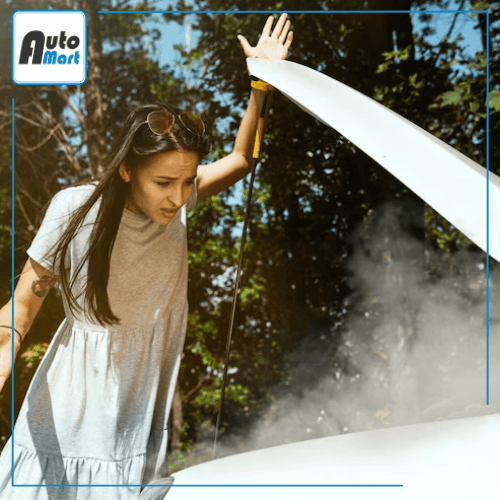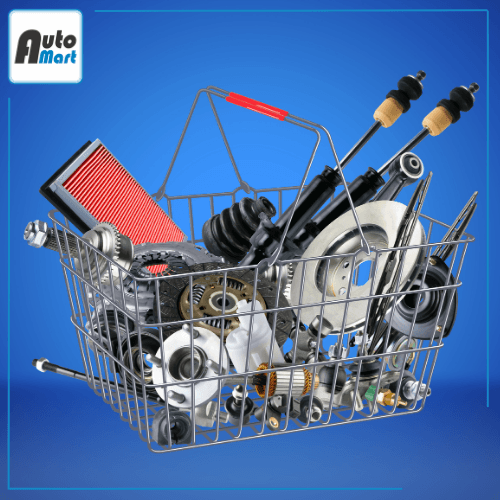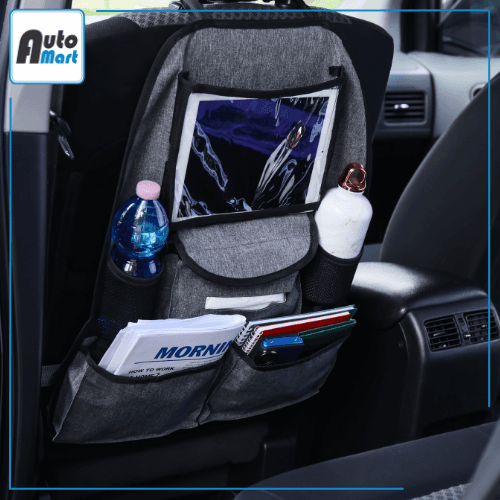Engine overheating is a common issue that many vehicle owners encounter. It can lead to significant damage to the engine and other vital components if not addressed promptly. Understanding the common causes of engine overheating and knowing how to fix them can help drivers prevent costly repairs and ensure the longevity of their vehicles. Visit Auto Mart to see all listed cars for sale at affordable and lower prices.
In this article, we will explore the various reasons why engines overheat and provide practical solutions to resolve these issues.
 Photo Source: Freepik
Photo Source: Freepik
Common Causes of Engine Overheating:
1. Insufficient Coolant:
One of the primary causes of engine overheating is a lack of coolant or antifreeze. Coolant plays a crucial role in maintaining the engine's temperature by absorbing heat and transferring it away from the engine. If the coolant level is low or there is a leak in the system, the engine may overheat. To fix this issue, check the coolant level regularly and top it up if necessary. If you notice a coolant leak, have it repaired by a qualified mechanic as soon as possible.
2. Malfunctioning Thermostat:
The thermostat is responsible for regulating the flow of coolant through the engine. If it becomes stuck in the closed position, it can prevent coolant from circulating properly, leading to engine overheating. Replacing a faulty thermostat is relatively inexpensive and can be done by a skilled mechanic.
3. Cooling System Leaks:
Leaks in the cooling system can result in a loss of coolant, leading to engine overheating. Common sources of leaks include a damaged radiator, cracked hoses, or a faulty water pump. It is essential to visually inspect the cooling system for any signs of leaks, such as puddles of coolant under the vehicle. If you detect a leak, it is advisable to have it repaired promptly to prevent further damage.
4. Radiator Issues:
A malfunctioning radiator can hinder the cooling process and cause the engine to overheat. Common problems include clogged or corroded radiator fins, a faulty radiator cap, or a damaged radiator fan. Regular maintenance, such as flushing the radiator and cleaning the fins, can help prevent these issues. If the radiator is severely damaged, it may need to be replaced.
Read: The Six Most Common Car Problems You Might Face
5. Cooling Fan Problems:
The cooling fan is responsible for maintaining airflow through the radiator to dissipate heat. If the fan fails or operates intermittently, it can lead to engine overheating. Inspect the cooling fan for any visible damage, and ensure that it turns on when the engine reaches operating temperature. If the fan is not functioning correctly, it may need to be repaired or replaced.
6. Clogged or Faulty Water Pump:
The water pump circulates coolant throughout the engine, and if it becomes clogged or fails, the coolant will not flow efficiently, resulting in overheating. Signs of a faulty water pump include coolant leaks from the pump or unusual noises coming from the engine. If you suspect a problem with the water pump, it is advisable to consult a professional mechanic for a proper diagnosis and repair.
 Photo Source: Freepik
Photo Source: Freepik
How to Fix Engine Overheating Issues:
Stop the Vehicle:
If you notice your engine temperature gauge rising rapidly or see steam coming from under the hood, it is crucial to pull over to a safe location as soon as possible. Continuing to drive with an overheating engine can cause severe damage.
Allow the Engine to Cool Down:
Once you have stopped the vehicle, turn off the engine and allow it to cool down before attempting any repairs. Opening the hood immediately can lead to burns or injuries from hot steam or coolant.
Check Coolant Levels:
After the engine has cooled down, check the coolant expansion tank to ensure it is at the appropriate level. If it is low, add the recommended coolant or antifreeze. However, if you notice a significant loss of coolant or a recurring low level, it is advisable to have the cooling system inspected by a professional to identify any leaks or underlying issues.
Inspect for Leaks:
Visually inspect the cooling system, including the radiator, hoses, and water pump, for any signs of leaks. Look for coolant puddles under the vehicle or any visible damage to the components. If you identify a leak, it is best to have it repaired by a qualified mechanic to prevent further coolant loss.
Check the Thermostat:
If you suspect a faulty thermostat, it is recommended to have it checked and replaced if necessary. A stuck closed thermostat can prevent coolant circulation, leading to engine overheating. A skilled mechanic can diagnose the thermostat's functionality and replace it if needed.
Clean or Replace the Radiator:
Regular maintenance of the radiator is essential to prevent overheating. If the radiator fins are clogged with debris or corroded, it can impede proper heat dissipation. Clean the radiator fins using a soft brush or compressed air to remove any obstructions. If the radiator is severely damaged or corroded, it may need to be replaced.
 Photo Source: Freepik
Photo Source: Freepik
Test the Cooling Fan:
Ensure that the cooling fan is operating correctly. Start the engine and let it reach operating temperature while observing the fan's behavior. The fan should turn on automatically to maintain airflow through the radiator. If the fan does not engage or operates intermittently, it may require repair or replacement.
Assess the Water Pump:
If you suspect a faulty water pump, it is best to have a professional mechanic examine it. They can check for any blockages or leaks and determine if the water pump needs to be repaired or replaced. Ignoring water pump issues can lead to severe engine damage.
Engine overheating is a common problem that drivers may encounter. By understanding the common causes of engine overheating and knowing how to fix them, vehicle owners can take preventive measures and avoid costly repairs. Regularly check coolant levels, inspect for leaks, and ensure the proper functioning of the thermostat, radiator, cooling fan, and water pump. When faced with an overheating engine, stop the vehicle, allow it to cool down, and follow the necessary steps to diagnose and address the issue. By prioritising maintenance and prompt repairs, drivers can ensure the longevity and reliability of their vehicles. Explore Auto Mart to discover a wide selection of affordable cars available for sale.




